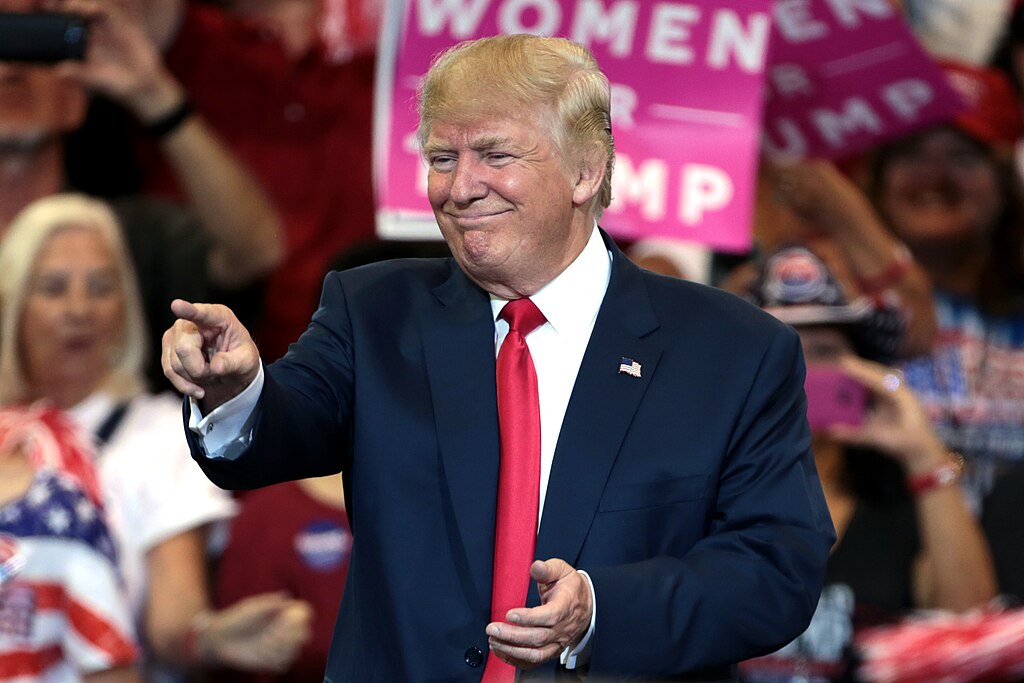As President Donald Trump embarks on his second term in 2025, his administration's economic policies are significantly influencing the stock market, eliciting both optimism and caution among investors.
Market Performance and Investor Sentiment
The stock market has experienced notable gains since Trump's re-election. Major indices, including the S&P 500 and Nasdaq, have reached record highs, driven by investor confidence in the administration's pro-business stance. Analysts from Goldman Sachs and Morgan Stanley project the S&P 500 could reach 6,500 by the end of 2025, citing robust economic growth and corporate earnings.
Corporate Tax Reforms
A cornerstone of Trump's economic agenda is the proposed reduction of the federal corporate tax rate from 21% to 15%, aiming to stimulate business investment and economic expansion. Historical data suggests that such tax cuts can lead to increased corporate profits and, consequently, higher stock valuations.
Regulatory Adjustments
The administration is implementing regulatory changes across various sectors. Notably, plans to streamline regulations for self-driving vehicles have positively impacted companies like Tesla, whose stock surged following the announcement.
Trade Policies and Tariff Implications
Trump's trade policies, particularly the imposition of tariffs, have elicited mixed reactions. Proposals for universal tariffs of up to 20% on imports have raised concerns about potential inflationary pressures and supply chain disruptions. Analysts warn that such measures could adversely affect sectors reliant on imported goods, potentially leading to a market downturn.
Sectoral Impact
Different sectors are responding variably to the administration's policies:
-
Technology: Tech companies are benefiting from anticipated deregulation and advancements in artificial intelligence, contributing to significant stock gains.
-
Energy: Fossil fuel producers are experiencing a boost due to relaxed environmental regulations, while renewable energy stocks face challenges amid policy shifts favoring traditional energy sources.
-
Financials: Banks and financial institutions are optimistic about deregulation efforts, expecting increased profitability and market share.
Investor Caution and Economic Outlook
Despite the market's upward trajectory, some investors exercise caution. Concerns about potential inflation, interest rate adjustments, and the long-term effects of trade policies persist. Analysts advise monitoring economic indicators and policy developments closely to assess the sustainability of current market trends.
Conclusion
President Trump's 2025 economic policies are profoundly impacting the stock market, fostering both enthusiasm and apprehension among investors. While certain sectors thrive under the administration's initiatives, others face uncertainties. The interplay between tax reforms, regulatory adjustments, and trade policies will continue to shape market dynamics in the coming years.



 ASX CEO Exit Signals Turbulent Transition Amid Lawsuit and Regulatory Scrutiny
ASX CEO Exit Signals Turbulent Transition Amid Lawsuit and Regulatory Scrutiny  U.S.-Israel War on Iran Escalates as Gulf Conflict Disrupts Oil, Air Travel and Regional Security
U.S.-Israel War on Iran Escalates as Gulf Conflict Disrupts Oil, Air Travel and Regional Security  Israel Prepares Weeks-Long Military Campaign Against Iran Amid Escalating Air Strikes
Israel Prepares Weeks-Long Military Campaign Against Iran Amid Escalating Air Strikes  Israel Strikes Hezbollah Targets in Lebanon After Missile and Drone Attacks
Israel Strikes Hezbollah Targets in Lebanon After Missile and Drone Attacks  Does international law still matter? The strike on the girls’ school in Iran shows why we need it
Does international law still matter? The strike on the girls’ school in Iran shows why we need it  The strikes on Iran show why quitting oil is more important than ever
The strikes on Iran show why quitting oil is more important than ever  Trump Says U.S. Combat Operations in Iran Will Continue Until Objectives Are Met
Trump Says U.S. Combat Operations in Iran Will Continue Until Objectives Are Met  Japan Manufacturing PMI Jumps to Four-Year High as Global Demand Strengthens
Japan Manufacturing PMI Jumps to Four-Year High as Global Demand Strengthens  Why did Iran bomb Dubai? A Middle East expert explains the regional alliances at play
Why did Iran bomb Dubai? A Middle East expert explains the regional alliances at play  Pentagon Downplays ‘Endless War’ Fears After U.S. Strikes on Iran Escalate Conflict
Pentagon Downplays ‘Endless War’ Fears After U.S. Strikes on Iran Escalate Conflict  Failure of US-Iran talks was all-too predictable – but Trump could still have stuck with diplomacy over strikes
Failure of US-Iran talks was all-too predictable – but Trump could still have stuck with diplomacy over strikes  Japan Signals Possible Currency Intervention as Yen Slides to 157.3 Amid Middle East Tensions
Japan Signals Possible Currency Intervention as Yen Slides to 157.3 Amid Middle East Tensions  Wall Street Closes Mixed as Tech Stocks Rally Despite U.S.–Iran Escalation and Oil Price Surge
Wall Street Closes Mixed as Tech Stocks Rally Despite U.S.–Iran Escalation and Oil Price Surge  Oil Prices Surge After U.S.-Israel Strikes on Iran, Raising Strait of Hormuz Supply Fears
Oil Prices Surge After U.S.-Israel Strikes on Iran, Raising Strait of Hormuz Supply Fears  Global Markets Reel as Euro Falls, Swiss Franc Surges and Oil Prices Spike After U.S.-Israel Strike on Iran
Global Markets Reel as Euro Falls, Swiss Franc Surges and Oil Prices Spike After U.S.-Israel Strike on Iran  S&P Global Warns of Potential Downgrade for Berkshire’s PacifiCorp Over Oregon Wildfire Liabilities
S&P Global Warns of Potential Downgrade for Berkshire’s PacifiCorp Over Oregon Wildfire Liabilities  Global Markets React as Dollar Surges, Swiss Franc Rallies After U.S.-Israel Strike on Iran
Global Markets React as Dollar Surges, Swiss Franc Rallies After U.S.-Israel Strike on Iran 
































